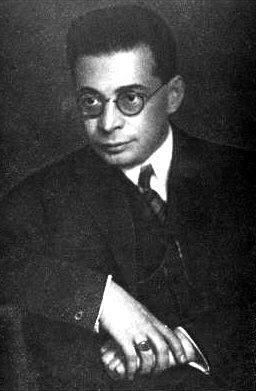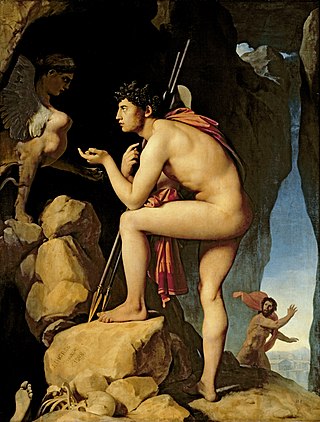Related Research Articles

Sándor Ferenczi was a Hungarian psychoanalyst, a key theorist of the psychoanalytic school and a close associate of Sigmund Freud.

Otto Rank was an Austrian psychoanalyst, writer, and philosopher. Born in Vienna, he was one of Sigmund Freud's closest colleagues for 20 years, a prolific writer on psychoanalytic themes, editor of the two leading analytic journals of the era, including Internationale Zeitschrift für Psychoanalyse, managing director of Freud's publishing house, and a creative theorist and therapist. In 1926, Rank left Vienna for Paris and, for the remainder of his life, led a successful career as a lecturer, writer, and therapist in France and the United States.
The genital stage in psychoanalysis is the term used by Sigmund Freud to describe the final stage of human psychosexual development. The individual develops a strong sexual interest in people outside of the family.
In psychology and psychiatry, scopophilia or scoptophilia is an aesthetic pleasure drawn from looking at an object or a person. In human sexuality, the term scoptophilia describes the sexual pleasure that a person derives from looking at prurient objects of eroticism, such as pornography, the nude body, and fetishes, as a substitute for actual participation in a sexual relationship.
In psychoanalysis, psychosexual development is a central element of the sexual drive theory. According to Freud, personality develops through a series of childhood stages in which pleasure seeking energies from the child become focused on certain erogenous areas. An erogenous zone is characterized as an area of the body that is particularly sensitive to stimulation. The five psychosexual stages are the oral, the anal, the phallic, the latent, and the genital. The erogenous zone associated with each stage serves as a source of pleasure. Being unsatisfied at any particular stage can result in fixation. On the other hand, being satisfied can result in a healthy personality. Sigmund Freud proposed that if the child experienced frustration at any of the psychosexual developmental stages, they would experience anxiety that would persist into adulthood as a neurosis, a functional mental disorder.
Repetition compulsion is the unconscious tendency of a person to repeat a traumatic event or its circumstances. This may take the form of symbolically or literally re-enacting the event, or putting oneself in situations where the event is likely to occur again. Repetition compulsion can also take the form of dreams in which memories and feelings of what happened are repeated, and in cases of psychosis, may even be hallucinated.

Franz Gabriel Alexander was a Hungarian-American psychoanalyst and physician, who is considered one of the founders of psychosomatic medicine and psychoanalytic criminology.
Don Juanism or Don Juan syndrome is a non-clinical term for the desire, in a man, to have sex with many different female partners. The name derives from the Don Juan of opera and fiction. The term satyriasis is sometimes used as a synonym for Don Juanism. The term has also been referred to as the male equivalent of nymphomania in women. These terms no longer apply with any accuracy as psychological or legal categories of psychological disorder.
Otto Fenichel was a psychoanalyst of the so-called "second generation". He was born into a prominent family of Jewish lawyers.
Identification is a psychological process whereby the individual assimilates an aspect, property, or attribute of the other and is transformed wholly or partially by the model that other provides. It is by means of a series of identifications that the personality is constituted and specified. The roots of the concept can be found in Freud's writings. The three most prominent concepts of identification as described by Freud are: primary identification, narcissistic (secondary) identification and partial (secondary) identification.
The latency stage is the fourth stage of Sigmund Freud's model of a child's psychosexual development. Freud believed that the child discharges their libido through a distinct body area that characterizes each stage.
Fixation is a concept that was originated by Sigmund Freud (1905) to denote the persistence of anachronistic sexual traits. The term subsequently came to denote object relationships with attachments to people or things in general persisting from childhood into adult life.

In classical psychoanalytic theory, the Oedipus complex refers to a son's sexual attitude towards his mother and concomitant hostility toward his father, first formed during the phallic stage of psychosexual development. A daughter's attitude of desire for her father and hostility toward her mother is referred to as the feminine Oedipus complex. The general concept was considered by Sigmund Freud in The Interpretation of Dreams (1899), although the term itself was introduced in his paper A Special Type of Choice of Object made by Men (1910).
Penis envy is a stage in Sigmund Freud's theory of female psychosexual development, in which young girls experience anxiety upon realization that they do not have a penis. Freud considered this realization a defining moment in a series of transitions toward a mature female sexuality. In Freudian theory, the penis envy stage begins the transition from attachment to the mother to competition with the mother for the attention and affection of the father. The young boy's realization that women do not have a penis is thought to result in castration anxiety.
Sandor Rado was a Hungarian psychoanalyst of the second generation, who moved to the United States in the 1930s.

Hanns Sachs was one of the earliest psychoanalysts, and a close personal friend of Sigmund Freud. He became a member of Freud's Secret Committee of six in 1912, Freud describing him as one "in whom my confidence is unlimited in spite of the shortness of our acquaintance".

Ernst Simmel was a German-American neurologist and psychoanalyst.
Creative Writers and Day-Dreaming was an informal talk given in 1907 by Sigmund Freud, and subsequently published in 1908, on the relationship between unconscious phantasy and creative art.
In psychoanalytic theory, Amphimixis is the merging of pleasure-centres into an amorphous unity. The concept was proposed by Sandor Ferenczi, a student and associate of Sigmund Freud.
Little Arpad [Bandi, 'Rooster Man'] is the name given to a case history of a child with a rooster identification and fetish by the psychoanalyst Sandor Ferenczi.
References
- ↑ C. Rycroft, A Critical Dictionary of Psychoanalysis (1995) p. 7
- ↑ P. Gay, Freud (1989) p. 281-2
- ↑ D. W. Winnicott, The Child, the Family, and the Outside World (1973) p. 43-4
- ↑ Sigmund Freud, On Sexuality (PFL 7) p. 208-15
- ↑ Sandor Ferenczi, 'The Ontogenesis of the Interest in Money' in J. Halliday/P. Fuller eds., The Psychology of Gambling (1974) p. 264-272
- ↑ Otto Fenichel, The Psychoanalytic Theory of Neurosis (1946) p. 139, 351 and 359-60
- ↑ F. L. Restuccia, Melancholics in Love (2000) p. 66